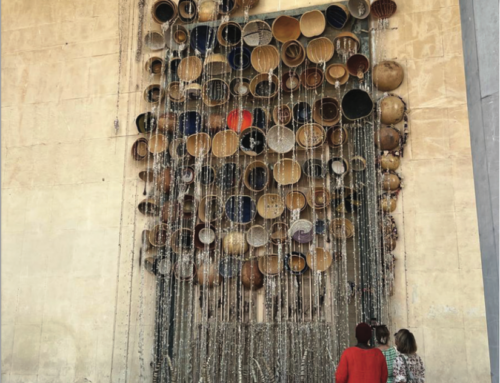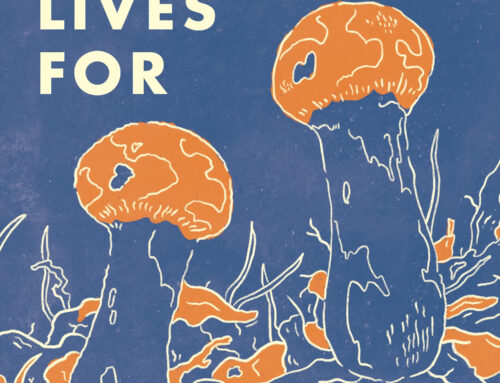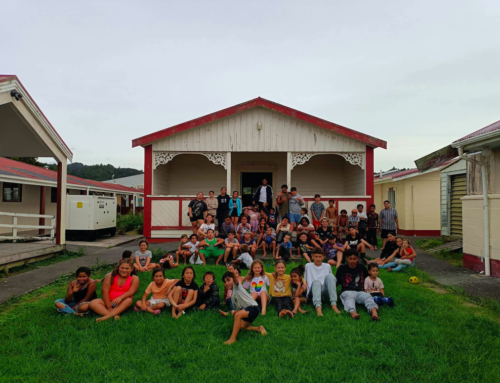Interview by AE editorial intern Deniz Daser (Rutgers University), January 2013
Professor Micaela di Leonardo’s article, “Grown Folks Radio: U.S. Election Politics and a ‘Hidden’ Black Counterpublic” appears in the November 2012 issue of American Ethnologist. She focuses on the Tom Joyner Morning Show (TJMS), the hugely successful and progressive syndicated radio program listened to by millions of African-Americans. Deftly integrating politics, news, humor, music, interviews, and philanthropy, TJMS, as di Leonardo points out, has largely been ignored by mainstream media outlets in their coverage of the American elections of 2008 and 2012. Nonetheless, TJMS has emerged as an important voice of a black counterpublic within the public sphere through its progressive politics, frank discussions of race in contemporary America, and established pop culture bona fides. Soon after the 2012 presidential election, AE editorial intern Deniz Daser asked Professor di Leonardo for her reflections on TJMS and President Obama’s re-election.
Deniz Daser (DD): Since the publication of “Grown Folks Radio,” President Barack Obama has been elected to a second term as president. What are your post-election observations about the role of the Tom Joyner Morning Show?
Micaela di Leonardo (MDL): Since I put “Grown Folks Radio” to bed this summer, we have all experienced the final hectic months of the 2012 U.S. elections and the Democrats’ triumph on November 6th. Analysis of exit polling indicates that, contrary to predictions, black and youth turnout were high, although not quite as high as in 2008. And much of the credit for black turnout goes not only to the much-ballyhooed “Obama ground game,” but also to the Tom Joyner Morning Show, its eight-million-strong audience, and other black media. Although the sheer number of hours they spent discussing the upcoming elections was fewer than in 2008, the TJMS crew were wired to a fever pitch in the last weeks before the November 6 Presidential election, and continued to report the news with particular attention to [not only African American] race, class, and gender angles. On September 27th, they noted sardonically that Romney appeared before Telemundo [actually, it was Univision] “with a spray-tan so dark it looked like he was pretending to be Latino!” Michelle Obama came on-air October 3rd to rally the troops in advance of the first debate, and the crew announced a “debate party” to be held on Facebook. 3000 people joined Facebook simply to participate in it. On election night, more than 150,000 people participated.
DD: In “Grown Folks Radio,” you discuss how the mainstream media has ignored TJMS’s significant media presence and its powerful role in serving the needs of a black counterpublic. What are some examples from the recent election that highlight these key findings?
MDL: Like progressive media in general, the TJMS crew were shocked by Obama’s poor first-debate performance, but quickly rallied. President Obama gave them a precious interview—the sole public event in which he discussed the first debate– on October 10th. Tom Joyner baldly asked him what had happened? Obama responded: “I think it’s fair to say I was just too polite, because, you know, it’s hard to sometimes just keep on saying and what you’re saying isn’t true. It gets repetitive. But, you know, the good news is, is that’s just the first one. Governor Romney put forward a whole bunch of stuff that either involved him running away from positions that he had taken, or doubling down on things like Medicare vouchers that are going to hurt him long term.” Given consistent, years-long mainstream and even progressive media neglect of the TJMS—as I documented in “Grown Folks Radio”—I was amazed to find that that very afternoon Obama’s quote “I Was Just Too Polite” was a Huffington Post headline, and then was used that evening, with attribution to the show, on both NBC News with Brian Williams, and on every MSNBC evening news show. I don’t know whether this aberrant response was due to the unique interview, or to the show’s improved publicity machine, but in any event, the attention did not last. Both during the campaign and after Obama’s successful re-election, no print or video source I consulted mentioned the key role that TJMS organizing and the 1-866-MYVOTE-1 hotline had played. The NAACP’s Ken Smukler, head of the hotline, reported that they were “at DEFCON 4” by 9:00 a.m. on November 6th. They received an average of 3,600 calls every hour, and found poll locations for 50,000 people, not to mention dispatching attorneys to hundreds of sites around the country where callers reported voter suppression. (And those numbers do not reflect the extraordinary work the hotline people did for weeks and months before the election.) As President Obama joked on the show on October 17th, “Here’s what I know: when Tom Joyner is workin’ it, good stuff happens!” But American mainstream and progressive media remain oblivious to that good stuff. And to this vibrant black working-class counterpublic, hidden in plain sight. This counterpublic was further instantiated both during early voting and on election day, as Republican state governments, attempting to suppress the Democratic vote, restricted voting hours and the availability of booths and ballots in minority neighborhoods, particularly in Ohio, Pennsylvania, and Florida. Extraordinarily long (and under-reported) lines ensued, with individuals waiting up to eight hours simply to cast their ballots, and black radio echoed Michelle Obama’s plea: Stay on line. Don’t let them discourage you. TJMS created an instant “line culture” in repeated days’ commands—“Everybody do the wobble (relatively recent black line dance) in line!” or “Do a Five Heartbeats lines duel!”—in assertions: “Black people know how to stand on line!”—and in queries: “What can you do to make money on line?” Texters flooded Tom Joyner’s cell with claims and suggestions: Babysitting. Hair braiding. Powering up devices. Selling “Jamaican cigarettes.” Further elaborating this working-class black counterpublic, with its hyper-awareness of ongoing popular white racism but openness to the existence of progressive whites, the crew asked its audience: How can you tell that your white co-workers or friends voted for Obama? Texters flooded the lines: They fist-bump you. They ask you how to do the wobble. They come in with big Obama stickers on their foreheads. Sybil Wilkes impersonated a young white guy: “Dude, are we gonna win this thing or not?” In the immediate election aftermath, the TJMS crew and correspondents like CNN’s Roland Martin, MSNBC’s Al Sharpton, even comics like Dominique expressed relief, joy, and profound exhaustion—the entire crew stayed up all night and were broadcasting at 5:00 a.m. on November 7th. Tom Joyner spent a certain amount of time complaining about the poor DJ-ing at the McCormick Place celebration: They should have played Shalimar’s “Second Time Around!” “Cool Mo Dee: How you like me now!” “They didn’t play “Oh Happy Day,” they didn’t play none a that!” But they also pivoted instantly to the next political tasks. While mainstream media focused on “Obama’s next crisis, the fiscal cliff,” TJMS and other black media began haranguing their audience on the necessity of staying mobilized and taking back Congress for the Democrats in the 2014 midterm elections.
DD: In your article you talk about how TJMS has shifted politically from the Bush years through the Obama presidency. Can you tell us more about that shift and in the wake of the 2012 election season, the significant changes you have witnessed more recently on TJMS. How do you see the show evolving in the near future?
MDL: I wrote in “Grown Folks Radio” about TJMS’s relative political retreat since Obama’s 2008 election—their sharp antiwar, anti-neoliberal critique in the George W. Bush years softened perhaps by sponsor pressure in a recessionary environment, perhaps by the felt necessity of defending the nation’s first African American First Family from the extraordinary surge of grotesque popular racism against them. In the first few days since Obama’s re-election, we have seen overtly racist remarks from right-wing pundits and two anti-Obama riots at Southern colleges—all of which TJMS has reported on and anatomized. For this reason alone, I would expect the show to maintain its defensive political stance over the next few years.
Micaela di Leonardo is Professor of Anthropology and Performance Studies at Northwestern University. She was also a Faculty Fellow at the Institute for Policy Research at Northwestern University, 2009-2012. Her most recent book, “New Landscapes of Inequality: Neoliberalism and the Erosion of Democracy in America,” published in 2008 by the School of Advanced Research Press, is co-edited with Jane Collins and Brett Williams.




